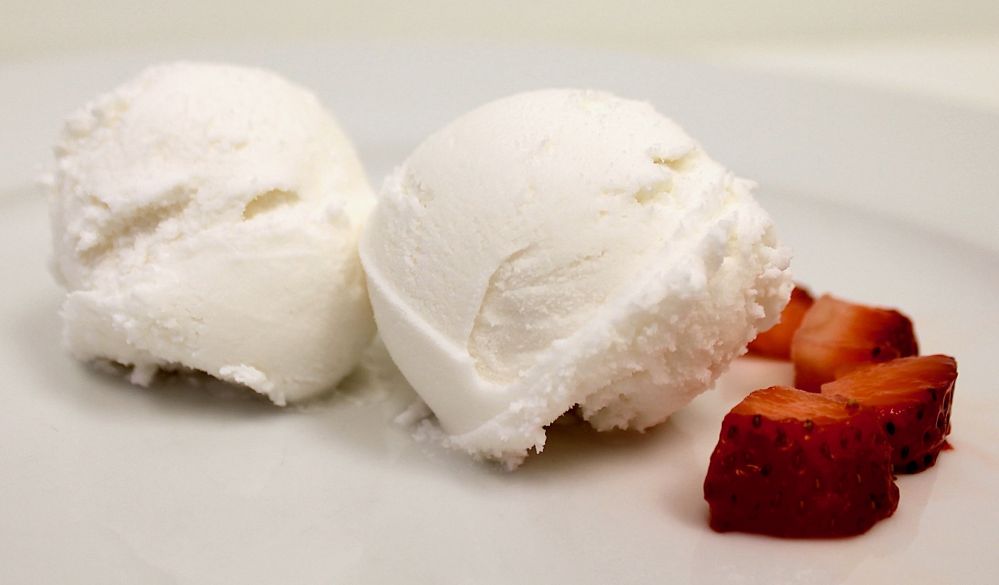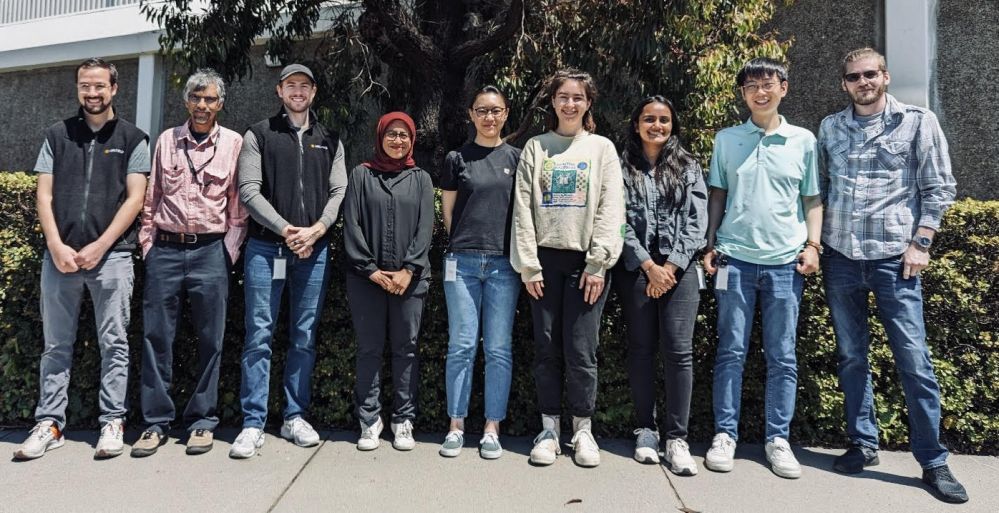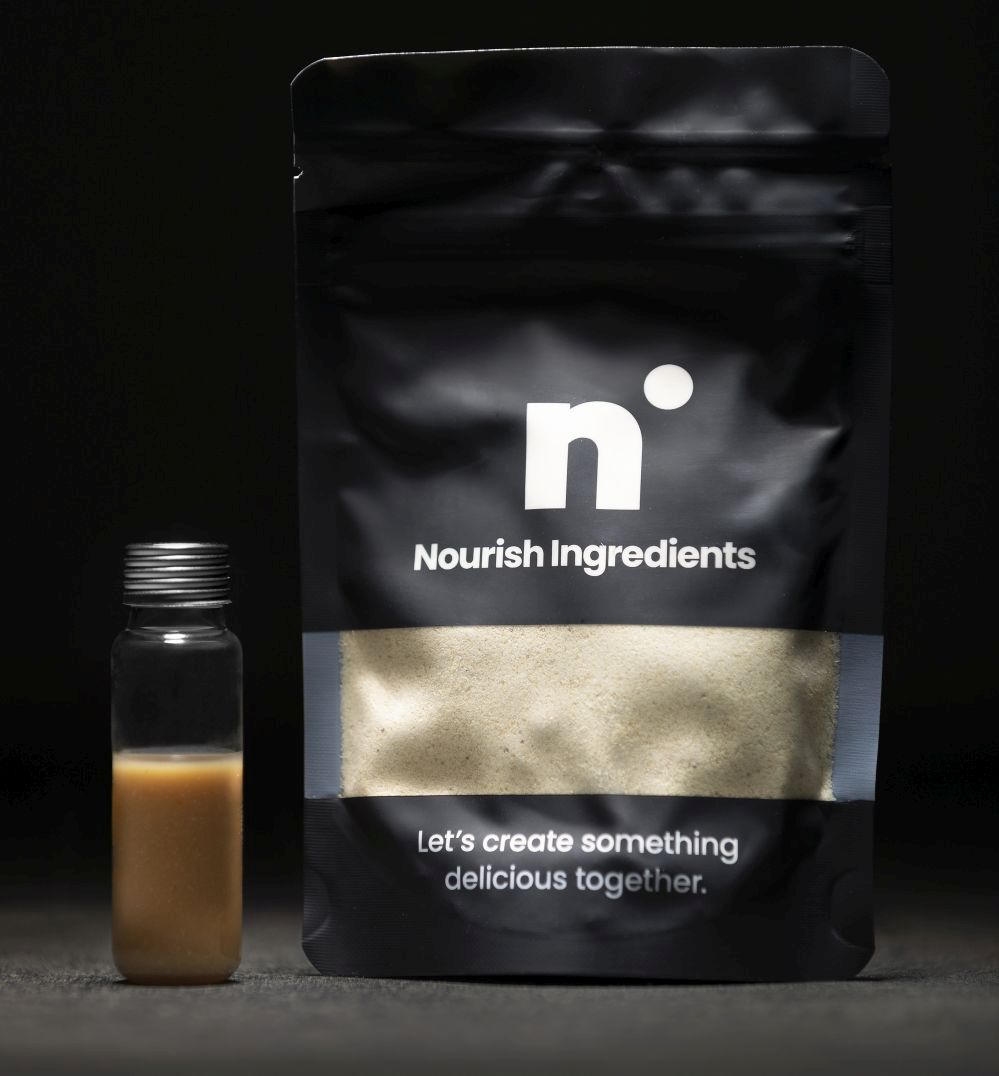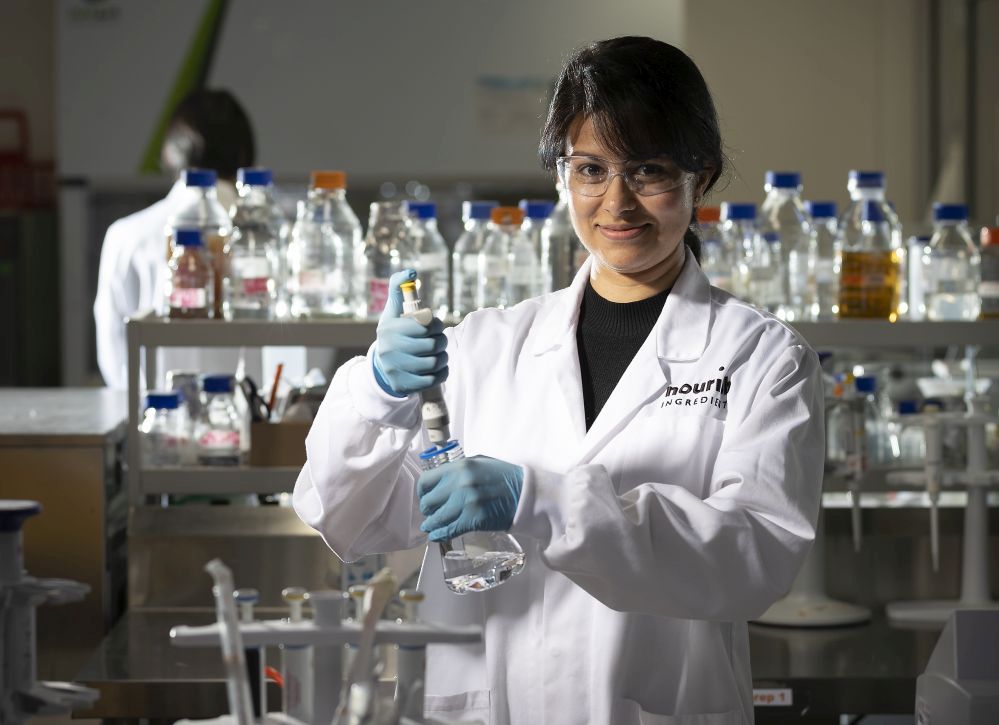Multiple startups now harness oil-producing microbes to create ‘designer’ fats with customized melting points, nutritional profiles, or green credentials. But will fats made via precision fermentation ever be a commercially viable alternative to tropical (palm, coconut, cocoa) or animal fats?
AgFunderNews (AFN) caught up with two players in this nascent field—Dr. James Petrie (JP), CEO at Australian startup Nourish Ingredients, and Dr. Yulin Lu (YL), founder and CEO at US-based startup Yali Bio—to discuss where it makes sense to make fats from precision fermentation.
Lu—a biochemical engineer with extensive experience in microbial fermentation through working at Solazyme (which developed a range of fats from microalgae), and Impossible Foods (which uses GM yeast to produce its flagship ‘heme’ protein)—founded Yali Bio in 2021. Yali Bio’s initial focus is on engineering yeast strains to produce alternatives to dairy fats for plant-based ice cream and other products.
Petrie—a crop metabolic engineer who worked as a research scientist at Australia’s national science agency CSIRO before cofounding Nourish with Dr. Ben Leita in 2019—is working with fungi and yeast. Nourish’s first product Tastilux, which was unveiled at SXSW Sydney in October, is designed to be used at very low inclusion rates in alt meat to deliver an “authentic animal taste, aroma and natural cooking reactions.”
Neither party is yet providing details about the exact composition of their fats or how they might be labeled.

AFN: Fats and oils are commodities. Does it ever make economic sense to produce them via precision fermentation?
JP: We’re different to a lot of other alt fat companies because we are focusing on really potent fats with an inclusion rate of sub-1%. There are some startups making alternatives to palm oil, which you can absolutely do. But it’s not commercially viable, and that’s why you see them now pivoting to cosmetics and other higher value applications.
This is the fundamental challenge for precision fermentation. The product has to be able to pay.
There are some companies creating fatty acids from carbon dioxide [rather than using sugars as feedstock], which is really interesting technology that may have the potential to shake things up for more commodity-type fats. However, with this approach you can’t produce the kind of complex fats we’re looking at.
YL: It’s very hard to compete with highly efficient plant-derived ingredients such as tropical oils that are currently produced at very large scale. So my view has always been that fermentation has to create something that existing plant-based options cannot provide.
Our strain is very productive, but the downstream process is a large component of the cost as the fats accumulate in the cells and we have to break them open to recover and purify the fats. What we need to do is to continue to de-risk both the technology and the market.
AFN: What’s your scale up plan and how easy is it to find fermentation capacity to meet your needs?
JP: As we’re focusing on fats with an inclusion rate of sub-1%, we don’t actually need much fermentation capacity. Access to 10,000-50,000-liter fermenters is really all we need, at least at this point.
Most of our capacity requirement is post-fermentation; that’s where the value creation really happens, when we either have to separate out these potent lipids or do further cooking reactions in order to take them through a typical Maillard reaction to get the taste and aroma molecules we associate with cooked food.
Manufacturing is likely to happen in multiple locations over time. But what we’re focusing on now is opening our pilot-scale downstream processing facility in Singapore to go from kilos a year to tons a year. For the fermentation we’re working with Cauldron in Australia, ScaleUp Bio in Singapore and Boston Bioprocess in the US. Our facility in Singapore should be fully operational in January.
YL: We recently recruited Don DiMasi, SVP of engineering at Impossible Foods [who previously worked with Lu] to lead the bio manufacturing initiative here at Yali Bio, so that we can really figure out our capacity requirements and how best to serve our markets.
We have a high cell density aerobic fermentation process, for which there’s quite a bit of capacity out there, and I can see a clear path to scale into large scale fermentation vessels of 100,000-300,000 liters. But in the short term, we have existing relationships with co-manufacturers and we’re exploring some longer-term relationships.
AFN: Tell us about your first products
JP: Tastilux is fungal biomass [Nourish doesn’t spend money separating the fat from the host microorganism], which means that the fermentation part and the immediate downstream is really cheap. We only need to grow the biomass up to an appropriate concentration and amount and then we can process it directly, which means that all of the different separation steps that would usually be very expensive in producing an isolated fat do not come into play because we use the entire biomass.
We could use the isolated lipids out of that biomass. But not only does it add cost, it doesn’t actually work as well as the whole biomass containing those lipids.
One of the interesting things that we found when we’ve taken Tastilux to a flavor house is that they say it tastes meaty, roasted, and animalic, but we don’t know which species it is. That is actually by design because we looked across multiple animal species for common elements, those base animalic notes which you can then nudge in different directions towards beef or pork or chicken.
The other comment we get [when partners sample meat alternatives containing Tastilux] is that the products are more juicy, which might sound surprising given the low inclusion rate, but even a very small amount of fat can have a dramatic effect on not only taste, but mouthfeel and juiciness.
Our second product is a fat [made via precision fermentation using an undisclosed GM microbe] that we’ve been sampling in chocolate, which can create vegan products with a far more compelling mouthfeel so the fat coats your mouth [like dairy fat]. We’re still at the prototype stage, but it’s tremendously exciting.
I can’t say more at this stage, but we did a deep dive into dairy lipids to try and understand where the opportunity is. Anyone can make an anhydrous milkfat; the challenge is making it profitably; so we’re looking for fats and lipids which are distinct and different and can be used at very low inclusion rates.
YL: We’re making alternatives to dairy fats from oleaginous yeast. Some CPG brands are happy with coconut oil, but others have issues with the saturated fat levels, the flavor and the melting point, so we’re seeing interest in [replacing coconut fat] in ice cream, cheese and butter.
Our fat is unique in that it has 50% less saturated fat than coconut oil, but has a higher melting point of around 30 degrees Celsius whereas coconut oil melts at around 21-22 Celsius.

AFN: How are you customizing your fats?
JP: We’ve worked hard on strain discovery and modification to really change the type and amount of different fat classes that are being produced via precision fermentation. By careful strain selection, strain design and modification, and culture conditions, we can really drive down the fermentation component of our cost because we are getting a lot of bang for our buck in terms of how far that material goes.
We have some extraordinarily efficient strains now where you can get the majority of the mass to be fat.
Our current iteration [of Tastilux] that we’re testing with customers is non-GMO as we were able to find our own proprietary strains of fungi that contain fatty acids that are found in animals, but not in plants, and then work on them so that we can make them much more efficient production platforms.
The other way you can do it is through genetic engineering, although there are significant regulatory hurdles. We are still pursuing the GMO pathway as you can do things with synthetic biology and metabolic engineering that you simply cannot do by strain discovery. So there is a place for both approaches, but at the moment, most of our effort is focused on what we can we get to market quickest.
YL: Our core technology is engineering the enzymes responsible for triglycerides structure and fatty acids profiles. There’s a lot of genetic work that can be done to tune the fatty acid profile so we can make hard fats with high melting points that are not super high in saturated fats, for example.
The value proposition of what we can make has become even clearer over time, so that is really satisfying to see.

AFN: Tell us about the funding environment right now…
JP: We raised $28.6 million in a series A round led by Horizons Ventures last year and we’ll likely raise again next year. We have a reasonable runway but I think it becomes much less reasonable when you start installing capital equipment for your downstream process. And that’s really the point that we are at now: we have lots of customer interest, and we need to be able to satisfy that demand, at least at the smaller end of the commercial scale.
It’s an interesting time. The market has certainly cooled off around plant protein investment, but on the whole I actually think that is a healthy thing as valuations were on the whole too high, and I think that’s hurting companies who raised at the peak, so we’re starting to see down rounds and closures.
A more discerning market looking at fundamentals is a good thing and the only way we’re going to get out of a consumer hype cycle into really compelling products that people actually want to eat.
YL: We’ve raised about $5 million in seed funding, but we haven’t gone out to raise over the last 18 months. It’s very painful for founders raising capital right now, but we’re small with a highly capable team with experience in technology, scale up and business development. We have good operational efficiency, and we’re building traction with technology demonstrations and product applications.
AFN: When do you hope to be on the market and how do regulatory factors impact this?
JP: We aim to have our first sales in 2024. We are thinking predominantly about North America, where we’re going through the GRAS process. Europe will follow but it is potentially a little slower because of some regulatory considerations. We’re also talking to the Singapore Food Agency and FSANZ in Australia and New Zealand.
We’re not producing novel molecules, we’re just producing them in a novel way.
JP: We’re working on our regulatory strategy, but the fats we’re making are present in dairy fat. The yeast we’re working with is already GRAS approved, which makes things easier than if we were working with some kind of new or exotic microorganism.

Designer fats
Nourish and Yali Bio are among a growing number of startups using precision fermentation to make tailored fats including Melt&Marble, ÄIO, c16 Bio, Circe, Seminal Bio, NoPalm Ingredients, Zero Acre Farms and Clean Food Group.
Other startups are making cell-cultured fat by growing animal fat cells in a bioreactor (Mission Barns, Believer Meats); while some are playing around with the structure of plant oils through emulsions (Lypid), oleogels (Shiru, Motif FoodWorks), and oil structuring technology (Fattastic).
Further reading:





